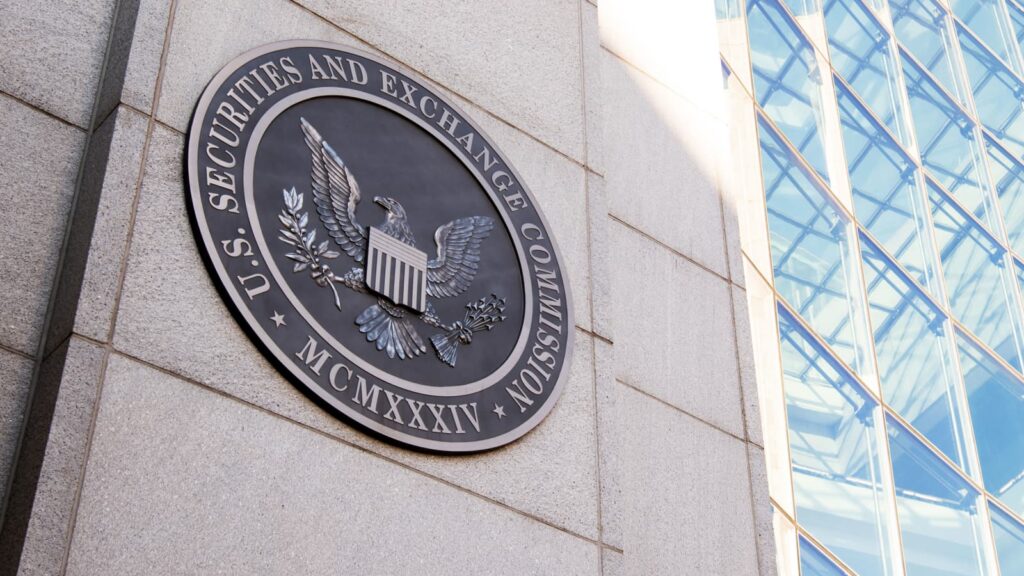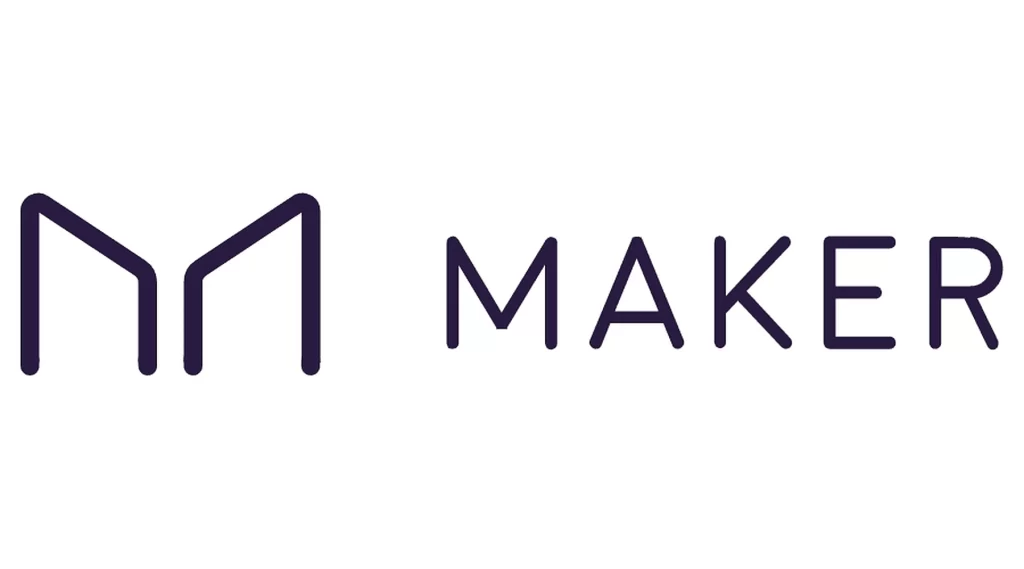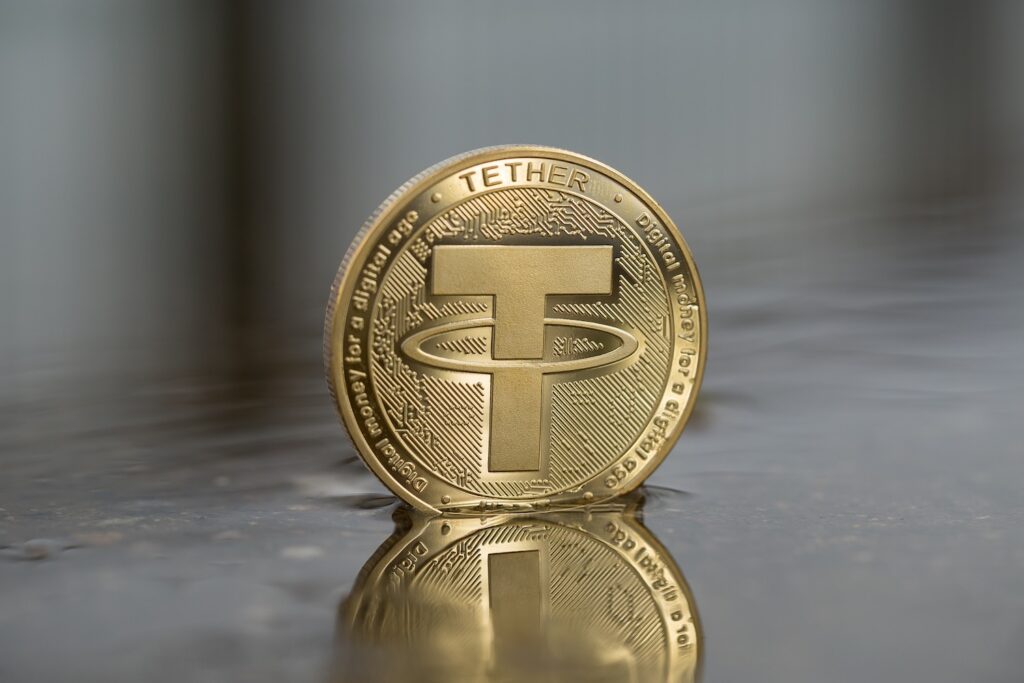Trump Bitcoin (TRUBTC) could become a viral memecoin, like Shiba Inu (SHIB) and Dogecoin (DOGE).
Trump Bitcoin (TRUBTC), a Solana memecoin that was launched today, is aiming to challenge other memecoin giants, such as Shiba Inu (SHIB) and Dogecoin (DOGE).
Early investors in SHIB and DOGE made astronomical returns, and Trump Bitcoin presents a similar opportunity.
Trump Bitcoin has market cap below $10,000 at the moment, meaning that when it just reaches a modest market cap of $200,000-$500,000, early investors would generate returns of 2,000%-5,000% in a matter of days or hours.
The exciting memecoin is poised to rally 5,300% in the coming two days, and Trump Bitcoin could potentially reach a multi-million dollar market cap within a few weeks.
Currently, Trump Bitcoin can only be purchased via Solana decentralized exchanges, like Jupiter and Raydium, and early investors stand to make huge returns in the coming days.
To buy Trump Bitcoin on these platforms, users need to connect their Solflare, MetaMask or Phantom wallet, and swap Solana for Trump Bitcoin by entering its contract address – 6u9hfkAM2M96y7SvRGH55iEyTdhFdTu52ipRumSTh79k – in the receiving field.
In fact, early investors could make returns similar to those who invested in Shiba Inu (SHIB) and Dogecoin (DOGE) before these memecoins went viral and exploded in price.
If this happens, a new wave of memecoin millionaires could be created in a matter of weeks – or potentially even sooner.
The Solana memecoin craze continues amid larger memecoins, like Shiba Inu (SHIB), Dogecoin (DOGE) and DogWifHat (WIF) trading sideways in recent weeks and losing momentum.
This is why many SHIB, DOGE and WIF investors are instead investing in new Solana memecoins, like TRUBTC.
Cyborg Shiba (CYSHIB) could become a viral memecoin, like Shiba Inu (SHIB) and Dogecoin (DOGE).
Cyborg Shiba (CYSHIB), a Solana memecoin that was launched today, is aiming to challenge other memecoin giants, such as Shiba Inu (SHIB) and Dogecoin (DOGE).
Early investors in SHIB and DOGE made astronomical returns, and Cyborg Shiba presents a similar opportunity.
Cyborg Shiba has a market cap below $10,000 at the moment, meaning that when it just reaches a modest market cap of $200,000-$500,000, early investors would generate returns of 2,000%-5,000% in a matter of days or hours.
The exciting memecoin is poised to rally 4,700% in the coming two days, and Cyborg Shiba could potentially reach a multi-million dollar market cap within a few weeks.
Currently, Cyborg Shiba can only be purchased via Solana decentralized exchanges, like Jupiter and Raydium, and early investors stand to make huge returns in the coming days.
To buy Cyborg Shiba on these platforms, users need to connect their Solflare, MetaMask or Phantom wallet, and swap Solana for Cyborg Shiba by entering its contract address – D5hXWyqKPUo4gZB1v8GQuWqb3EgDWuu2fuQQiVTHPutY – in the receiving field.
In fact, early investors could make returns similar to those who invested in Shiba Inu (SHIB) and Dogecoin (DOGE) before these memecoins went viral and exploded in price.
If this happens, a new wave of memecoin millionaires could be created in a matter of weeks – or potentially even sooner.
The Solana memecoin craze continues amid larger memecoins, like Shiba Inu (SHIB), Dogecoin (DOGE) and DogWifHat (WIF) trading sideways in recent weeks and losing momentum.
This is why many SHIB, DOGE and WIF investors are instead investing in new Solana memecoins, like CYSHIB.
Gym Doge (GYMDOGE) could become a viral memecoin, like Shiba Inu (SHIB) and Dogecoin (DOGE).
Gym Doge (GYMDOGE), a Solana memecoin that was launched today, is aiming to challenge other memecoin giants, such as Shiba Inu (SHIB) and Dogecoin (DOGE).
Early investors in SHIB and DOGE made astronomical returns, and Gym Doge presents a similar opportunity.
Gym Doge has market cap below $10,000 at the moment, meaning that when it just reaches a modest market cap of $200,000-$500,000, early investors would generate returns of 2,000%-5,000% in a matter of days or hours.
The exciting memecoin is poised to rally 5,300% in the coming two days, and Gym Doge could potentially reach a multi-million dollar market cap within a few weeks.
Currently, Gym Doge can only be purchased via Solana decentralized exchanges, like Jupiter and Raydium, and early investors stand to make huge returns in the coming days.
To buy Gym Doge on these platforms, users need to connect their Solflare, MetaMask or Phantom wallet, and swap Solana for Gym Doge by entering its contract address – CqudELpjNktwDig23QPW6efNaBkzmUKspuDLpPqfoZjo – in the receiving field.
In fact, early investors could make returns similar to those who invested in Shiba Inu (SHIB) and Dogecoin (DOGE) before these memecoins went viral and exploded in price.
If this happens, a new wave of memecoin millionaires could be created in a matter of weeks – or potentially even sooner.
The Solana memecoin craze continues amid larger memecoins, like Shiba Inu (SHIB), Dogecoin (DOGE) and DogWifHat (WIF) trading sideways in recent weeks and losing momentum.
This is why many SHIB, DOGE and WIF investors are instead investing in new Solana memecoins, like GYMDOGE.
The Blockchain Association (BA) and the Crypto Freedom Alliance of Texas (CFAT) have initiated a lawsuit against the U.S. Securities and Exchange Commission (SEC), filed in the Northern District of Texas.
This legal challenge was announced by the BA on April 23 as a direct response to the SEC’s recent changes to the “Dealer Rule” in the Securities Exchange Act of 1934.
These industry groups argue that the SEC has exceeded its regulatory powers by broadly redefining the term “dealer.” In February, the SEC implemented new regulations that expanded the definitions of “dealer” and “government securities dealer.”
As a result, more participants in the cryptocurrency market are now required to register, affiliate with a self-regulatory organization, and adhere to federal securities laws.
The BA and CFAT contend that this broadened interpretation creates a nebulous and oppressive regulatory climate for those engaged in digital asset trading.
The lawsuit further asserts that the SEC neglected to properly address public concerns during a limited comment period and failed to evaluate the adverse effects these changes might have.
READ MORE: As PEPE Leads, DOGE Accelerates, a New Player is Steering Toward Success
Kristin Smith, CEO of the Blockchain Association, criticized the SEC’s actions, stating, “The Dealer Rule advances the SEC’s anti-digital asset crusade and unlawfully redefines the boundaries of its statutory authority granted to it by Congress, threatening to drive U.S. companies offshore and incite fear in American innovators.”
The lawsuit aims to revoke the Dealer Rule expansion, alleging it infringes on the Administrative Procedure Act (APA), which mandates transparent and equitable rulemaking processes, including the consideration of public input and the provision of clear regulations.
Smith emphasized their legal strategy, remarking, “We are seeking declaratory judgment and injunctive relief against the regulators to overturn the expansion of the rule and ultimately to prohibit its use against the industry before more harm can be done by this rabid regulator.”
Representing a substantial segment of the cryptocurrency sector, the BA and CFAT advocate for a national policy in the U.S. that promotes local innovation and responsible development in the digital asset field.
This lawsuit underscores their commitment to defending the interests of the cryptocurrency community against what they perceive as overreach by the SEC.
To submit a crypto press release (PR), send an email to sales@cryptointelligence.co.uk.
Two attorneys from the U.S. Securities and Exchange Commission (SEC), Michael Welsh and Joseph Watkins, have resigned following a district court’s harsh criticism of the agency’s conduct in a cryptocurrency case.
According to a Bloomberg report dated April 22, the lawyers stepped down earlier in the month after being warned of potential termination.
Welsh and Watkins, who were relatively recent additions to the SEC, were leading the case against DEBT Box, a crypto platform.
Welsh joined the SEC as a trial attorney in December 2022, and Watkins started as an attorney in the Division of Enforcement in January 2023, their LinkedIn profiles show.
Their resignations came in the wake of a decision by Chief Judge Robert J. Shelby, who presided over the case in Salt Lake City, Utah.
In March, Judge Shelby rebuked the SEC for making false statements and misrepresentations in its lawsuit against Digital Licensing Inc., also known as DEBT Box.
He criticized the SEC for a “gross abuse of the power entrusted to it by Congress,” which he said “substantially undermined the integrity of these proceedings and the judicial process.”
READ MORE: Cryptocurrency Users Settle with Ex-FTX CEO Sam Bankman-Fried in Class-Action Lawsuit
In his March 18 filing, Judge Shelby articulated that the evidence presented by the SEC “lacked any basis” and was put forth in “deliberately false and misleading ways.”
He specifically noted that Welsh was aware of inaccuracies in his statements during a temporary restraining order (TRO) hearing, but instead of correcting these errors, “he and the Commission attempted to subtly shift the language to gloss over and perpetuate the misconduct.”
Earlier, in August 2023, the SEC had secured emergency relief against DEBT Box, temporarily freezing the Utah-based company’s assets and issuing restraining orders against its principals, accusing them of a $50 million crypto fraud scheme.
The crypto industry has frequently criticized the SEC’s regulatory tactics under Chair Gary Gensler, particularly attacking the so-called “regulation by enforcement” strategy.
Critics argue this approach has bred regulatory uncertainty, stifled innovation, and diminished the competitiveness of the U.S. in the global digital asset market.
This criticism follows amidst high-profile SEC actions against major crypto platforms like Coinbase and Binance, and anticipated enforcement against the decentralized finance platform Uniswap.
To submit a crypto press release (PR), send an email to sales@cryptointelligence.co.uk.
DAO Maker, a crypto fundraising platform focused on Web3 projects, is distinct from the MakerDAO stablecoin protocol and aims to raise significant funds in 2024.
Despite this initiative, the platform is under scrutiny from victims of a 2021 hack who claim they have not been fully compensated for their losses, despite promises from the development team.
The hack, resulting in a loss of approximately $7 million, was attributed to a compromised private key, which victims allege stemmed from developer negligence.
Initially, DAO Maker responded to the August 2021 breach by distributing 500 USD Coin per affected user and promising further compensation through a new IOU token named “USDR,” scheduled to be redeemable within a year for the platform’s native DAO token at enhanced rates.
However, victims told Cointelegraph that they were never able to redeem their USDR tokens, and the promised redemption process was reportedly canceled following a governance vote influenced by DAO Maker using its substantial token holdings.
Adding to the controversy, a decentralized finance (DeFi) researcher from SOMA Analytics reported that DAO Maker might have manipulated the governance vote to abandon the USDR redemption and attempted to erase evidence of this decision.
Victims of the hack remain uncompensated, and the USDR token has become nearly worthless, with no active market or exchange possibilities.
One investor, speaking under the pseudonym “Red Drac,” described receiving 500 USDT immediately after the hack and 1,500 USDR later, which they were unable to redeem or sell at full value.
They discovered a liquidity pool that offered the USDR tokens at a substantial discount but chose not to sell, leaving the tokens in their wallet.
Another affected user, “Zztelecom,” also highlighted the inability to redeem USDR, buying them at a discount in the hope of future gains that never materialized.
READ MORE: Qtum Foundation Pilots 10K Nvidia GPUs to Power $500 billion Blockchain AI Sector
SOMA Analytics further detailed how a specific proposal on the DAO Maker platform to adjust the USDR redemption terms was passed by just six wallets, suggesting potential manipulation.
This proposal reduced the redemption value of USDR significantly, contradicting earlier commitments.
Despite the DAO vote favoring a 50% redemption rate, no compensation was distributed, and the tokens were made unredeemable for anything other than DAO Power on the platform, effectively rendering them useless in the secondary market.
The situation has left many investors with tokens that offer little more than the potential to participate in future token offerings without guarantee of profit.
As DAO Maker continues to operate, servicing Web3 startups and maintaining a significant market presence, the unresolved issues from the hack raise ongoing concerns about governance and compensation practices within the platform.
Cointelegraph’s inquiries to DAO Maker for comments remained unanswered at the time of publication.
To submit a crypto press release (PR), send an email to sales@cryptointelligence.co.uk.
Since Tether began supporting The Open Network (TON) on April 19, $60 million worth of Tether has been issued on the platform.
This places TON as the 11th-largest blockchain for Tether among the 16 that currently support the stablecoin.
The announcement of this initiative was made at the Token2049 crypto conference in Dubai, signifying a strategic collaboration between the stablecoin issuer and the TON Foundation.
Alongside Tether, the firm has also introduced the gold-pegged Tether Gold (XAUT) stablecoin on the TON blockchain.
The Open Network team emphasized the efficiency of this new offering, highlighting that cross-border payments can be made instantly and without fees, as simply as sending a text message to any of Telegram’s 900 million users.
Tether CEO Paolo Ardoino expressed optimism about the partnership’s early results, noting in a social media post on April 21 that $35 million in USDT had already been issued on TON within the first two days.
This figure has since increased to $60 million according to the latest Tether Transparency report.
The integration with Telegram allows users to send money seamlessly through direct messages without the need for blockchain addresses or additional applications.
READ MORE: Pro-XRP Lawyer John Deaton Advocates for Coinbase Users in SEC Lawsuit, Sets Sights on Senate Seat
The platform also supports fully integrated on-ramps for most global fiat currencies at launch, and plans are in place to introduce global off-ramps that will facilitate withdrawals directly to bank accounts or cards.
Despite these developments on TON, the majority of Tether’s $109.8 billion circulating supply remains on the Tron network, which hosts $57.8 billion.
Ethereum follows with $51 billion in circulation, although this figure has been decreasing as Tether expands to other blockchains to mitigate high network fees associated with Ethereum.
Other blockchains supporting Tether include Solana, which ranks third with $1.9 billion issued, and several others such as Avalanche, Omni, Cosmos, Tezos, Near, EOS, and Celo.
In the broader stablecoin market, Tether maintains a dominant position with a 69% market share of the total $159.5 billion stablecoin market capitalization, as per data from CoinGecko.
Circle’s USD Coin, the nearest competitor, holds a 21% market share with $33.7 billion in circulation.
Following the announcement, the price of Toncoin spiked by 22%, although it quickly reverted to its prior levels. As of the latest update, Toncoin is trading down 1.6% at $6.13.
To submit a crypto press release (PR), send an email to sales@cryptointelligence.co.uk.
Over the past month, at least 12 memecoins presold on the Solana blockchain have been reportedly abandoned after collectively raising $26.7 million.
Independent blockchain investigator ZachXBT detailed these findings in a recent post on the social platform X, highlighting the volatility and risks associated with such investments.
ZachXBT pointed out that the projects utilized the controversial presale method to gather funds, with several experiencing significant losses shortly after their launch.
One of the memecoins did not even release a token.
The most dramatic decline was observed in the memecoin “I like this coin” (LIKE), which was initiated by the pseudonymous founder pokeee.eth.
This particular token amassed 52,220 SOL (approximately $7.7 million) and debuted with a market capitalization of $577 million on March 17.
However, it lost over 90% of its value within just eight hours of launching. Currently, LIKE has plummeted by 99.2% from its initial price.
The official X account for LIKE has been inactive since March 31, with no further updates or comments from its founder, pokeee.eth, about the project since then.
Another significant project, dubbed MOONKE, faced a similar fate.
READ MORE: Bitcoin’s Fourth Halving Sparks Bullish Outlook Amid ETF Growth and Record Highs
Launched on March 20 by RockyXBT, MOONKE initially boasted a nearly $500 million valuation but also saw its price drop more than 99% shortly after.
Other projects, like one that raised 4,567 SOL (around $812,000), failed to launch their tokens entirely.
Attempts by Cointelegraph to reach the founders, including pokeee.eth and RockyXBT, for comments were unsuccessful.
The broader market sentiment towards Solana-based memecoins has cooled, with leading tokens such as Dogwifhat (WIF) dropping more than 40% since the start of April.
This trend reflects a growing skepticism similar to that witnessed during the Ethereum ICO boom in 2017, a period marked by rampant speculation and high-profile failures.
Among the noted incidents, the developer of the Slerf (SLERF) memecoin accidentally destroyed the entire presale allocation of the token in a so-called “fat finger” burn error in March.
Despite this significant setback, involving 535,000 SOL (valued at about $10 million at that time), SLERF gained a cult following and briefly surged to a market cap of approximately $750 million.
To submit a crypto press release (PR), send an email to sales@cryptointelligence.co.uk.
Gym Doge (GYMDOGE) could become a viral memecoin, like Shiba Inu (SHIB) and Dogecoin (DOGE).
Gym Doge (GYMDOGE), a Solana memecoin that was launched today, is aiming to challenge other memecoin giants, such as Shiba Inu (SHIB) and Dogecoin (DOGE).
Early investors in SHIB and DOGE made astronomical returns, and Gym Doge presents a similar opportunity.
Gym Doge has market cap below $10,000 at the moment, meaning that when it just reaches a modest market cap of $200,000-$500,000, early investors would generate returns of 2,000%-5,000% in a matter of days or hours.
The exciting memecoin is poised to rally 5,300% in the coming two days, and Gym Doge could potentially reach a multi-million dollar market cap within a few weeks.
Currently, Gym Doge can only be purchased via Solana decentralized exchanges, like Jupiter and Raydium, and early investors stand to make huge returns in the coming days.
To buy Gym Doge on these platforms, users need to connect their Solflare, MetaMask or Phantom wallet, and swap Solana for Gym Doge by entering its contract address – CqudELpjNktwDig23QPW6efNaBkzmUKspuDLpPqfoZjo – in the receiving field.
In fact, early investors could make returns similar to those who invested in Shiba Inu (SHIB) and Dogecoin (DOGE) before these memecoins went viral and exploded in price.
If this happens, a new wave of memecoin millionaires could be created in a matter of weeks – or potentially even sooner.
The Solana memecoin craze continues amid larger memecoins, like Shiba Inu (SHIB), Dogecoin (DOGE) and DogWifHat (WIF) trading sideways in recent weeks and losing momentum.
This is why many SHIB, DOGE and WIF investors are instead investing in new Solana memecoins, like GYMDOGE.
Smart Pepe (SMPEPE) could become a viral memecoin, like Shiba Inu (SHIB) and Dogecoin (DOGE).
Smart Pepe (SMPEPE), a Solana memecoin that was launched today, is aiming to challenge other memecoin giants, such as Shiba Inu (SHIB) and Dogecoin (DOGE).
Early investors in SHIB and DOGE made astronomical returns, and Smart Pepe presents a similar opportunity.
Smart Pepe has a market cap below $10,000 at the moment, meaning that when it just reaches a modest market cap of $200,000-$500,000, early investors would generate returns of 2,000%-5,000% in a matter of days or hours.
The exciting memecoin is poised to rally 5,300% in the coming two days, and Smart Pepe could potentially reach a multi-million dollar market cap within a few weeks.
Currently, Smart Pepe can only be purchased via Solana decentralized exchanges, like Jupiter and Raydium, and early investors stand to make huge returns in the coming days.
To buy Smart Pepe on these platforms, users need to connect their Solflare, MetaMask or Phantom wallet, and swap Solana for Smart Pepe by entering its contract address – 48EWerq7ztGdxxfMgVhz121hyW3yqrv3tVsamMvYfJKm – in the receiving field.
In fact, early investors could make returns similar to those who invested in Shiba Inu (SHIB) and Dogecoin (DOGE) before these memecoins went viral and exploded in price.
If this happens, a new wave of memecoin millionaires could be created in a matter of weeks – or potentially even sooner.
The Solana memecoin craze continues amid larger memecoins, like Shiba Inu (SHIB), Dogecoin (DOGE) and DogWifHat (WIF) trading sideways in recent weeks and losing momentum.
This is why many SHIB, DOGE and WIF investors are instead investing in new Solana memecoins, like SMPEPE.











